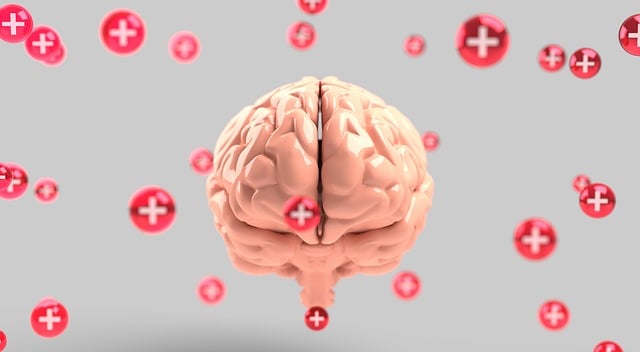Colorado Springs Neuro Disorders Therapy emphasizes holistic risk management in mental health care, addressing internal and external risks through education, compassion cultivation, and evidence-based practices. They prioritize patient safety by identifying unique client needs, incorporating stress reduction techniques, and adhering to mental wellness standards. Regular reviews and continuous learning ensure therapists are equipped to navigate complex cases effectively, fostering emotional healing in a supportive environment. This proactive approach enhances therapeutic outcomes while promoting therapists' well-being and sustainability in the field.
Mental health professionals face unique challenges, with risk management playing a vital role in ensuring patient safety. This article guides Colorado Springs Neuro Disorders Therapy practitioners through a comprehensive risk management plan tailored to their field. We explore understanding and identifying risks specific to neuro disorders therapy, from potential hazards in the local environment to individual patient factors. By implementing effective strategies, therapists can deliver safe, evidence-based care. Continuous monitoring and adaptation are key to mitigating these risks, ensuring optimal patient outcomes.
- Understanding Risk in Mental Health Practice
- Identifying Potential Hazards in Colorado Springs Neuro Disorders Therapy
- Developing a Comprehensive Risk Management Plan
- Implementing Strategies for Safe and Effective Care
- Continuous Monitoring and Adaptation in Risk Mitigation
Understanding Risk in Mental Health Practice

In the field of mental health therapy, understanding risk is a cornerstone of effective practice. Risk, in this context, encompasses various factors that can impact both clients’ well-being and therapists’ professional integrity. At Colorado Springs Neuro Disorders Therapy, we recognize that each client presents with unique challenges and vulnerabilities, making it imperative for therapists to cultivate a comprehensive risk management strategy. This involves not only identifying potential risks but also implementing proactive measures to mitigate their impact.
Compassion Cultivation Practices and Emotional Healing Processes play a pivotal role in mitigating risks within mental health practice. By fostering an environment of empathy and understanding, therapists can create a safe space where clients feel heard and supported. Additionally, Mental Health Education Programs Design equips professionals with the knowledge and skills to recognize early warning signs of potential crises, allowing for timely interventions. This holistic approach ensures that both therapists and clients are equipped to navigate challenges effectively, fostering a therapeutic environment that prioritizes emotional safety and healing.
Identifying Potential Hazards in Colorado Springs Neuro Disorders Therapy

In Colorado Springs Neuro Disorders Therapy, identifying potential hazards is a multifaceted process. Therapists must consider both internal and external factors that could negatively impact patient well-being. Internal risks may include burnout from high caseloads or the emotional demands of working with complex neurodisorders. External risks might involve environmental stressors, such as noise levels in the therapy setting or accessibility issues for patients with physical limitations. Mental health professionals in Colorado Springs must also be vigilant about cultural sensitivity in their practice, ensuring inclusive and supportive environments for a diverse range of clients.
Additionally, stress reduction methods and positive thinking strategies are crucial elements to mitigate risks. Therapists can foster resilience among patients by incorporating evidence-based practices that promote mental well-being. This includes teaching coping mechanisms, encouraging open communication, and integrating positive thinking exercises tailored to each patient’s unique needs. By addressing these potential hazards proactively, Colorado Springs Neuro Disorders Therapy can create a safer, more supportive space for healing and recovery.
Developing a Comprehensive Risk Management Plan

Developing a Comprehensive Risk Management Plan is an essential step for mental health professionals, especially those offering Colorado Springs Neuro Disorders Therapy. It involves identifying potential risks and hazards unique to this field and implementing strategic mitigation measures. By doing so, therapists can create a safe and supportive environment for their clients, fostering effective therapy sessions.
A well-crafted plan should encompass various aspects such as staff training in trauma support services, promoting positive thinking through structured programs, and ensuring the physical space adheres to mental wellness standards. Regular reviews and updates are crucial to address emerging challenges, thereby enhancing the overall quality of care provided by Colorado Springs Neuro Disorders Therapy practitioners.
Implementing Strategies for Safe and Effective Care

Implementing strategies for safe and effective care is paramount for mental health professionals, especially in a dynamic field like Colorado Springs Neuro Disorders Therapy. This involves integrating evidence-based practices that foster resilience among clients while minimizing risks. Organizations like the Stress Management Workshops Organization play a crucial role by offering resources on coping skills development, enabling therapists to enhance self-care practices and prevent burnout.
By participating in these workshops and embracing continuous learning, professionals can navigate complex cases with enhanced tools. This not only improves client outcomes but also ensures therapists maintain their well-being, which is essential for long-term sustainability in the field.
Continuous Monitoring and Adaptation in Risk Mitigation

In the dynamic field of mental health care, where client needs and challenges are ever-evolving, continuous monitoring and adaptation are paramount to effective risk management. At Colorado Springs Neuro Disorders Therapy, professionals recognize that each patient presents unique risks that demand ongoing assessment and adjustment in treatment strategies. By integrating regular review sessions into their practices, therapists can identify emerging issues, subtle changes in client conditions, or new environmental factors that may impact mental wellness. This proactive approach ensures that interventions remain relevant, tailored, and ultimately, successful in boosting client confidence.
Effective risk mitigation isn’t a static process; it requires professionals to stay agile and responsive. Regular monitoring allows for the timely detection of potential risks or crises, enabling therapists to implement appropriate measures promptly. Through this continuous cycle of assessment, adaptation, and intervention, mental health practitioners can create a safe and supportive environment that fosters both mental wellness and positive outcomes for their clients.
Effective risk management planning is essential for mental health professionals, especially in dynamic environments like Colorado Springs Neuro Disorders Therapy. By understanding risk, identifying potential hazards, and developing robust strategies, practitioners can ensure safe and effective care. A comprehensive risk management plan should be adaptable, continuously monitored, and regularly updated to address evolving challenges. This ensures that the well-being of both patients and professionals is prioritized, fostering a secure and positive therapeutic environment in Colorado Springs Neuro Disorders Therapy and similar settings.














